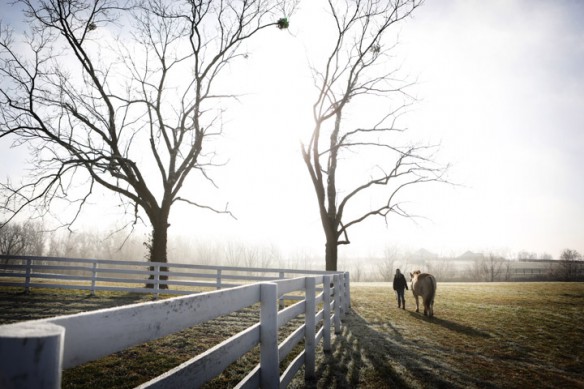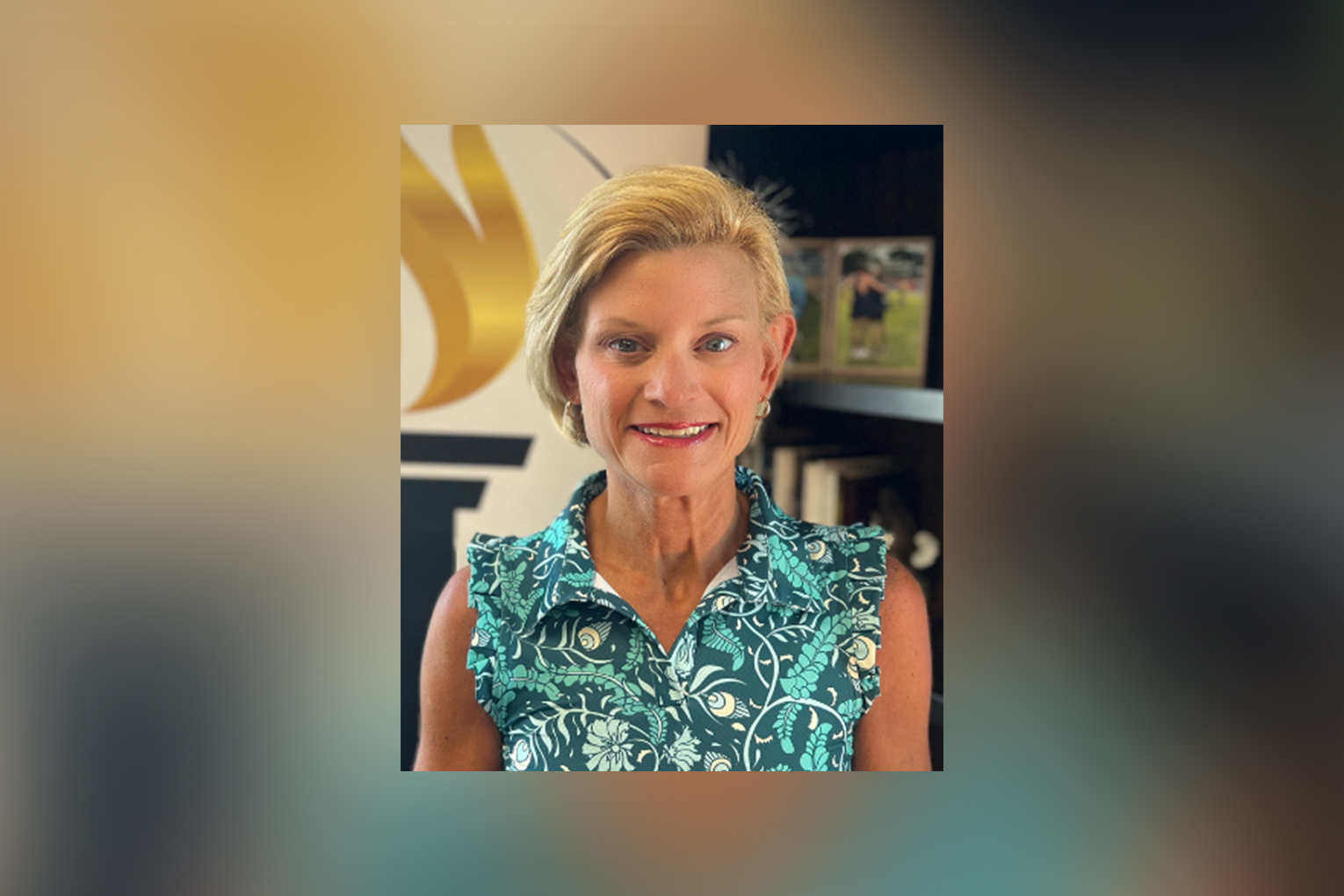
Sophomore Caitlin Wade walks a horse back to graze after grooming it at The STABLES (Fayette County). Wade said she would like to become a riding instructor. Photo by Amy Wallot, Nov. 28, 2012
By Matthew Tungate
matthew.tungate@education.ky.gov
D’Vonta Middlebrooks looks more like Andre 3000, the dashing singer of the hip-hop duo OutKast, than a farm hand, and to hear him and others tell it, he didn’t see himself as much of horseman, either, when the school year began.
The junior at The STABLES (Fayette County) didn’t have much choice, though, since the alternative school at the Kentucky Horse Park focuses instruction on the equine industry.
Middlebrooks and more than 40 other 7th- through 12th-graders spend all or part of their school day at The STABLES. It is housed in the office building of Central Kentucky Riding for Hope (CKRH), a non-profit therapeutic riding program for individuals with physical disabilities.
Besides caring for horses, all students take digital photography and equine studies, and may take their core classes at The STABLES or at their home school.
Students clean stalls, and water, feed, groom, bathe, trim and get the horses ready for therapy riders, The STABLES Academic Dean Brian McIntyre said. The students can receive a certificate of completion that they could take to local farms to show the skills they have acquired, he said.
Misty Cheetham, who teaches equine studies, said she teaches state science standards using horses. That includes nutrition and how it works in the body, principles of condition, biology and anatomy.
Students also learn problem solving and interpersonal skills, she said. The school’s hands-on approach has made a vast difference in some of the students, Cheetham said.
“It’s really rewarding,” she said.
Rachel Baker, director of The STABLES and special education administrator for high school and alternative programs in Fayette County, said all the students’ career choices are posted at the school. Staff tries to focus students on their career goals and how their actions are helping them reach those goals, she said.
“Our benefit is we’re really able to adapt the instruction to meet that individual kid’s needs and outcomes, whether that be educationally, college- and career-readiness, or socially. Kids are learning to build a real school culture,” Baker said.
Before this year, Missy Scott was teaching credit-recovery courses in a program located in the Fayette County school district office in downtown Lexington. Now, she isn’t teaching credit recovery as much as she’s teaching college- and career-readiness.
Scott is doing more project-based teaching than she has ever done and getting to spend more time with individual students.
“Being able to get the kids out of downtown and being able to expose them to things that they’ve never been exposed to was a huge opportunity for all of us,” she said.
Scott receives much of the credit for planting the seed to get the school started. About three years ago, her son, JP, was riding with CKRH. McIntyre, who at the time was a job coach for the district, had a student who was interested in working on a farm. Scott, knowing that CKRH was looking for volunteers, suggested McIntyre contact them.
McIntyre said the student had a lot of success that year, so the next year he placed three students with CKRH. Last school year, six students volunteered with the organization, each spending half a day at the Horse Park.
When CKRH opened its new building in 2011, that sparked the idea to hold classes in the building full-time. In addition to classrooms, the alternative school has access to a kitchen, barn and indoor riding arena.
CKRH staff work seamlessly with teachers at The STABLES, McIntyre said.
“They’ve embraced our kids,” he said. “They’ve gotten to know our kids, there’s a non-judgmental attitude toward our kids, and they treat them not like an alternative student but like a regular student.”
Baker said CKRH has other volunteers who used to work in the school system who were concerned when they heard The STABLES is an “alternative school.”
“Now, it’s like they can’t get enough of the kids,” she said. “Their attendance for their volunteers is up.”
McIntyre said the school looks for students who would flourish in a smaller setting that uses a hands-on, career-driven approach.. Gifted and talented students mix with students who may have mental or behavioral needs, just like in everyday life, he said.
“We work with all kids,” McIntyre said. “We accept all kids.
Students gain work competencies through project-based learning and experience, and while they may be reluctant at first, McIntyre said once they buy in, he gets complete effort.
CKRH Program Director Denise Spittler said CKRH wants to form a partnership with the community to expand the reach of horse riding. The opportunity to work with the school district gives students the opportunity to experience important life lessons through equine activities, she said.
“We want this to be a career-readiness preparation,” Spittler said. “Students are learning core content. They are learning about horses, they’re learning equine science, but most importantly they’re learning those career-readiness skills: pride in their work, dedication and coming and doing it every day, even when you don’t feel like it.
Working with the horses has had an additional effect, McIntyre said. The students are building their interpersonal communication skills, he said.
“These horses sense when a kid is having a bad day. They can sense when they’re having a good day,” he said. “It is so bizarre to see these horses do that.”
Middlebrooks, who initially didn’t like horses, has learned to like and understand them, too.
He recalled the time he and some of his classmates were measuring horses with a stick; he could tell one of the big ones, a 1,700-pound female, was feeling agitated by the way her ears were pinned back.
So, the boy, who had once been scared of horses, started rubbing her head and “playing friendly” so the mare wouldn’t be afraid of the measuring stick.
He also tells the story of Hoss and Rocket Boy: Rocket Boy listened when he was being trained but Hoss was stubborn. Middlebrooks liked the challenge. So, when his classmates went inside, Middlebrooks stayed outside training Hoss.
“Working with the horses helps you understand stuff better, because you’ve got to learn with them. It helps you become more patient. When you first start working with them, they’re not always going to listen. Some of them will listen,” he said. “But you just never stop. You’ve got to keep on trying until they listen.”
MORE INFO …
Rachel Baker, rachel.baker@fayette.kyschools.us, (859) 381-4778










Leave A Comment